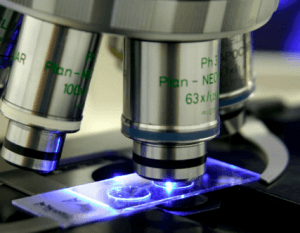Ghana Biotechnology and Nuclear Agriculture Research Institute appeals for support
 Dr. Michael Osae, Director of the Biotechnology and Nuclear Agriculture Research Institute (BNARI) has appealed to the government to provide funding to enable the Institute to conduct more research to address challenges facing farmers in the country.
Dr. Michael Osae, Director of the Biotechnology and Nuclear Agriculture Research Institute (BNARI) has appealed to the government to provide funding to enable the Institute to conduct more research to address challenges facing farmers in the country.
He said even though the support from the government had been of great help, the institute was still lacking funding which had hindered them from taking up other relevant projects.
The Director made this appeal during a public lecture to commence the 30th Anniversary celebrations of the Institute on the theme: “Blazing the Biotechnology Trail in Ghana: The BNARI story.”
The Institute was established in 1993 by upgrading the then Department of Biology, Food and Agriculture (DBFA) under the National Nuclear Research Institute (NNRI).
It was established as one of the research and technology transfer institutes of the Ghana Atomic Energy Commission with a mandate which stems from that of Commission on peaceful applications of nuclear and related techniques for socio-economic development.
“We have the critical mass of human resources and with the needed support, the Institute should make a greater impact on our national food and agricultural systems,” he said.
Dr. Osae said climate change and the introduction of new pests and diseases were two major problems Ghana’s food system was battling with, hence, the need to increase productivity and reduce post-harvest losses to feed the growing population.
He said it was important to strengthen the partnership between the Institute and private sectors to transfer technologies and knowledge.
Professor Kenneth Danso, a Former Director of BNARI, said the application of biotechnology in farming practices had helped in agricultural development of the country.
He said the Institute relied on international institutions, who collaborated with them to conduct research, which was of benefit to them and not Ghana.
Dr. Samuel Amiteye, Head of the Department of Nuclear Agriculture and Radiation Processing at School of Nuclear and Allied Sciences commended the Institute for their achievements so far, having contributed to the country’s agricultural sector immensely.
“Most of our funding has come from external sources, not much has come from within, so if Ghana intends to run fast with our advancement, then one of the things, we have to do is to get funding from within, from the government sources and the private sector,” he said
Source: GNA
